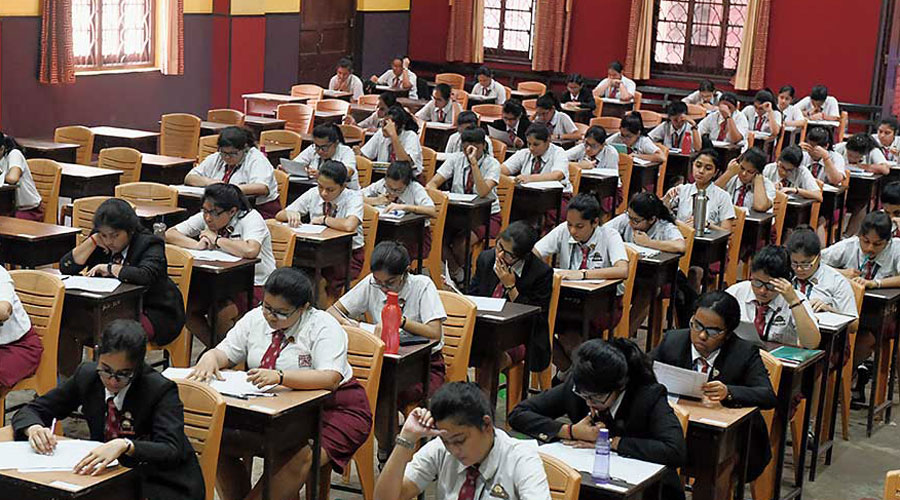Altogether 97.69 per cent of the candidates cleared higher secondary this year.
In a year when the West Bengal Council of Higher Secondary Education could not conduct the school-leaving exam because of the pandemic, the pass percentage rose by 7.56 per cent compared to last year’s 90.13, which was till then the highest ever.
While the pass percentage of the results declared on Thursday witnessed a jump, the number of top graders declined drastically compared to last year.
According to statistics released by council president Mahua Das, the number of candidates who got the ‘O’ grade — between 90 and 100 marks — came down to 9,013 this year from 30,220 in 2020.
The council prepared the results by giving 40 per cent weightage to a student’s performance in the Class X board exams and 60 per cent to the performance in the Class XI annual exams. The combined score was added to the marks obtained in the 30-mark practical or 20-mark project paper to arrive at the final score.
“The number of A+ grade (between 80 and 89) recipients has dropped to 49,370 from 84,746 last year. The number of A grade (70-79) recipients stands at 95,758. Last year, the figure was 96,825,” said Das.
The number B+ grade (60-69) recipients, however, increased from 1,10,265 in 2020 to 1,65,186.
This year a girl from a minority community emerged the topper, scoring 499 out of 500. Last year, four students had emerged toppers scoring 499.
Sunita Sen, the principal of the BSS school, said: “In Class XI, students are not as serious as they would be in Class XII. The schools also mark the students conservatively so that they know their weaknesses and work on them to do better in Class XII. Taking into account the Class XI performance while arriving at HS marks might have led to a fall in the number of the top-grade achievers,” said Sen.
Debabrata Mukheerjee, the headmaster of Sanskrit Collegiate School, said a section of students remained more focused on the preparations for the JEE and the medical entrance exam in Class XI. “They turn their focus on the board curriculum as the Class XII board exam approaches.”
Saugata Basu, the secretary of the government school teachers’ association, said: “If the Delhi boards evaluate their results in a way that their top-grade achievers outnumber those from the Bengal board, students of the state board will lose out on securing admission in colleges.”
The results of the CBSE Class XII and ISC exams are expected to be published by the end of July.
The concern over the fate of the Bengal board students has heightened because of the state higher education department’s instruction to colleges and universities to screen students for admission to undergraduate courses solely on the basis of their plus-II marks this year. “Our students will fail to get admission in premiere institutions (if the Delhi boards produce more high achievers). An admission test could have provided a level playing field to all,” said Basu.
The teachers of Jadavpur University has said in an email to education minister Bratya Basu on Tuesday that in a year when plus-II students could not write their school-leaving exams, assessment through an admission test “is vital for determining whether or not a candidate ought to take up a particular field of study at the higher levels”.










